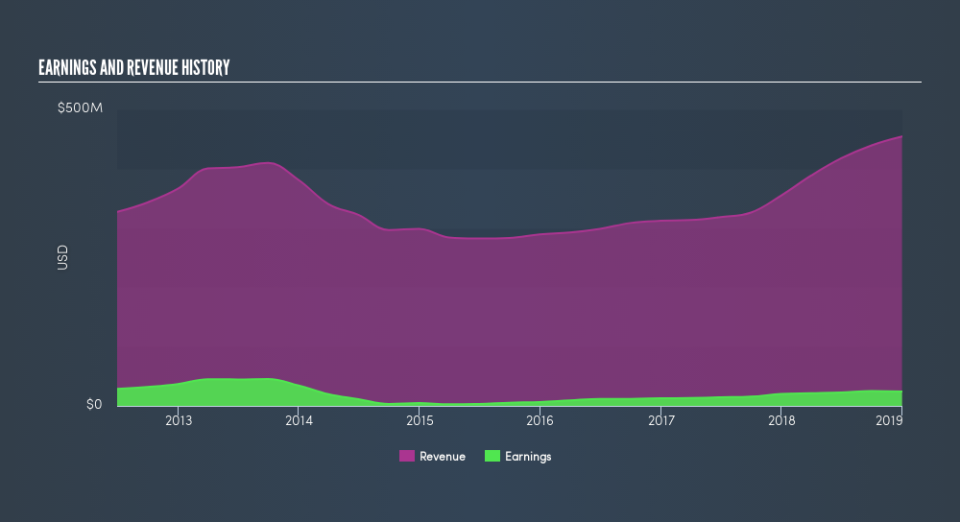Imagine Owning American Vanguard (NYSE:AVD) And Wondering If The 24% Share Price Slide Is Justified

The simplest way to benefit from a rising market is to buy an index fund. While individual stocks can be big winners, plenty more fail to generate satisfactory returns. That downside risk was realized by American Vanguard Corporation (NYSE:AVD) shareholders over the last year, as the share price declined 24%. That's well bellow the market return of 9.9%. On the bright side, the stock is actually up 6.3% in the last three years. There was little comfort for shareholders in the last week as the price declined a further 3.5%.
Check out our latest analysis for American Vanguard
While markets are a powerful pricing mechanism, share prices reflect investor sentiment, not just underlying business performance. One imperfect but simple way to consider how the market perception of a company has shifted is to compare the change in the earnings per share (EPS) with the share price movement.
During the unfortunate twelve months during which the American Vanguard share price fell, it actually saw its earnings per share (EPS) improve by 18%. It's quite possible that growth expectations may have been unreasonable in the past. It's surprising to see the share price fall so much, despite the improved EPS. So it's easy to justify a look at some other metrics.
With a low yield of 0.5% we doubt that the dividend influences the share price much. American Vanguard managed to grow revenue over the last year, which is usually a real positive. Since the fundamental metrics don't readily explain the share price drop, there might be an opportunity if the market has overreacted.
Depicted in the graphic below, you'll see revenue and earnings over time. If you want more detail, you can click on the chart itself.
We know that American Vanguard has improved its bottom line over the last three years, but what does the future have in store? If you are thinking of buying or selling American Vanguard stock, you should check out this FREE detailed report on its balance sheet.
What about the Total Shareholder Return (TSR)?
Investors should note that there's a difference between American Vanguard's total shareholder return (TSR) and its share price change, which we've covered above. The TSR is a return calculation that accounts for the value of cash dividends (assuming that any dividend received was reinvested) and the calculated value of any discounted capital raisings and spin-offs. Dividends have been really beneficial for American Vanguard shareholders, and that cash payout explains why its total shareholder loss of 24%, over the last year, isn't as bad as the share price return.
A Different Perspective
American Vanguard shareholders are down 24% for the year (even including dividends), but the market itself is up 9.9%. Even the share prices of good stocks drop sometimes, but we want to see improvements in the fundamental metrics of a business, before getting too interested. Regrettably, last year's performance caps off a bad run, with the shareholders facing a total loss of 1.5% per year over five years. Generally speaking long term share price weakness can be a bad sign, though contrarian investors might want to research the stock in hope of a turnaround. Before spending more time on American Vanguard it might be wise to click here to see if insiders have been buying or selling shares.
Of course American Vanguard may not be the best stock to buy. So you may wish to see this free collection of growth stocks.
Please note, the market returns quoted in this article reflect the market weighted average returns of stocks that currently trade on US exchanges.
We aim to bring you long-term focused research analysis driven by fundamental data. Note that our analysis may not factor in the latest price-sensitive company announcements or qualitative material.
If you spot an error that warrants correction, please contact the editor at editorial-team@simplywallst.com. This article by Simply Wall St is general in nature. It does not constitute a recommendation to buy or sell any stock, and does not take account of your objectives, or your financial situation. Simply Wall St has no position in the stocks mentioned. Thank you for reading.


